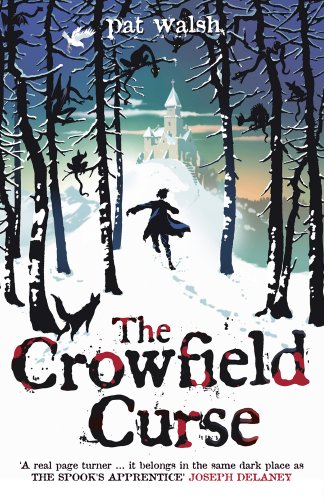
Read Rowena Cory Daniells Guest Blog Here
Visit Rowean Cory Daniells Website Here
Order King's Bastard from Amazon Here
Summary: The Kingdom of Rolencia sleeps as rumours of new Affinity Seeps, places where the untamed power wells up. By royal decree all those afflicted with Affinity must serve the Abbey or face death. Sent to the Abbey, the King’s youngest son, Fyn, trains to become a warrior monk. Elsewhere others are tainted with Affinity and must fight to survive. Political intrigue and magic combine in this explosive first book in an exciting new fantasy trilogy.
Format: The King's Bastard is an epic fantasy with many different plot threads floating around the book and various character point of views. It stands at 640 pages and was released June 29, 2010 by Solaris.
Analysis: I am always on the look out for a new fantasy series to try out. So when I heard about the King Rolen's King Trilogy I had to give it a shot. What I encountered was a very interesting fantasy experience.
King's Bastard can only be described as a fantasy soap opera with some magic thrown in on the side. That's not to say it was bad, but if you don't like multiple story lines and melodrama occurring at every twist and turn, then this probably isn't the book for you. Just to give you a brief idea of the drama involved in King's Bastard there was: jealous siblings, a cousin who had a father who was banished, an oppressed daughter, a closeted homosexual, a love triangle, a brother who is living in his twin's shadow all the time, and a third son who was sent away to be a monk. And those are just the ones I can think of off the top of my head!
Some of the story threads were a bit predictable at times but nothing came across as overly in your face predictable. I had a feeling stuff would happen but yet I wanted to read on!
Even with all the drama swirling around King's Bastard, I enjoyed it. I found it a fast moving, gripping fantasy. Due to the massive size and sometimes multiple plot lines going on, I could easily knock off 3 to 4 chapters before I knew it. However, like most soap operas I could only take these a little bit each day. I really feel if I had sat down, read through the whole book in one sitting (which wouldn't have been hard with this book) I wouldn't have enjoyed it as much. I liked having the suspense and intrigue and drama to look forward to every day.
While I enjoyed the book and loved it, I would have loved to see the land and the magic a bit more fleshed out. I felt almost like it was glossed over and I was missing something about the magic and land. Of course there are two other books so there is certainly time to get to those, but I really would have liked to see the magic in full effect in this novel.
If you're looking for a novel that has multiple characters and plot threads going around then King's Bastard is for you. I can't wait to see what happens in Book 2, and believe that Rowena Cory Daniels is off to a great start with this series!




